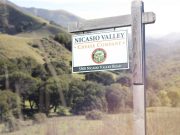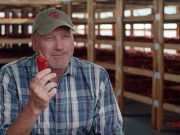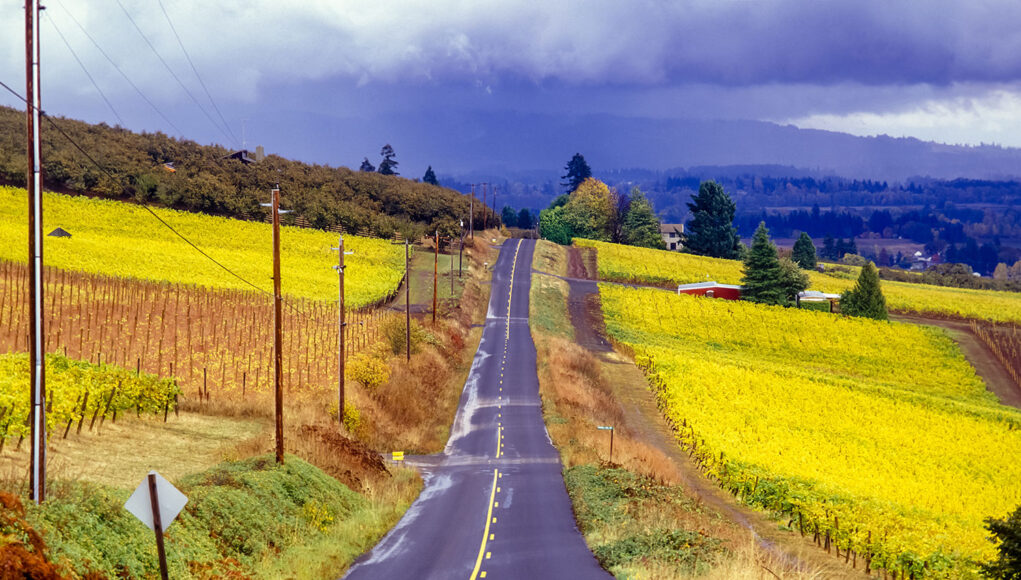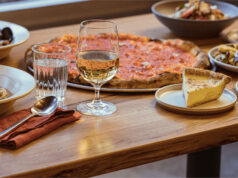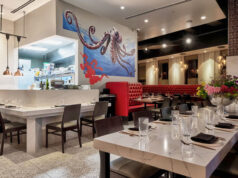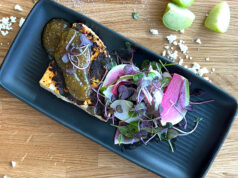ENVISION A PLACE where tight-knit, eco-friendly towns and cities sit beside farms, bakeries, markets, and craft breweries, all working together.
Where creative solutions and empathy drive the culinary scene, where quirky towns and farm stands appear in every curve of the highway.
Welcome to Oregon, land of milk and honey, fresh roasted coffee, best-ever pizza, delectable charcuterie boards, scrumptious tacos, and great tales of culinary adventure…
Featuring: Apizza Scholls’ Brian Spangler (Portland), Red Hills Market’s Jody Kropf (Dundee/Wine Country), and El Sancho’s Joel Cordes & Jon Barvels (Bend)
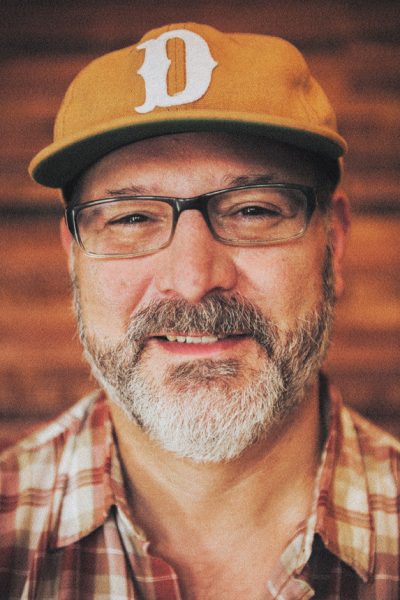
Apizza Scholls
Brian Spangler
Apizza Scholl’s Chef/Owner Brian Spangler’s personal highlight reel is like a loaded pizza with the Works. From bakeries to the liquid bread of microbreweries, Brian found his love of the art and science of baking early, and it transported him down
a golden brick road paved from his late high school days in Santa Cruz, through San Francisco’s dot-com boom and bust, and up the coast to Portland which served as a cheap, opportunity-filled blank canvas for his passions: BBQ, bread baking, and pizza.
If Portland is Brian’s Oz, then Peter Reinhart is his Scarecrow, Nancy Silverton and Chris Bianco his Tin Woman and Cowardly Lion, and Anthony Bourdain his Wizard.
The real magic of Brian’s story is how well he paved his own path which he built with $50K, a pack of matches, a hatchet, some wood and his own two hands.
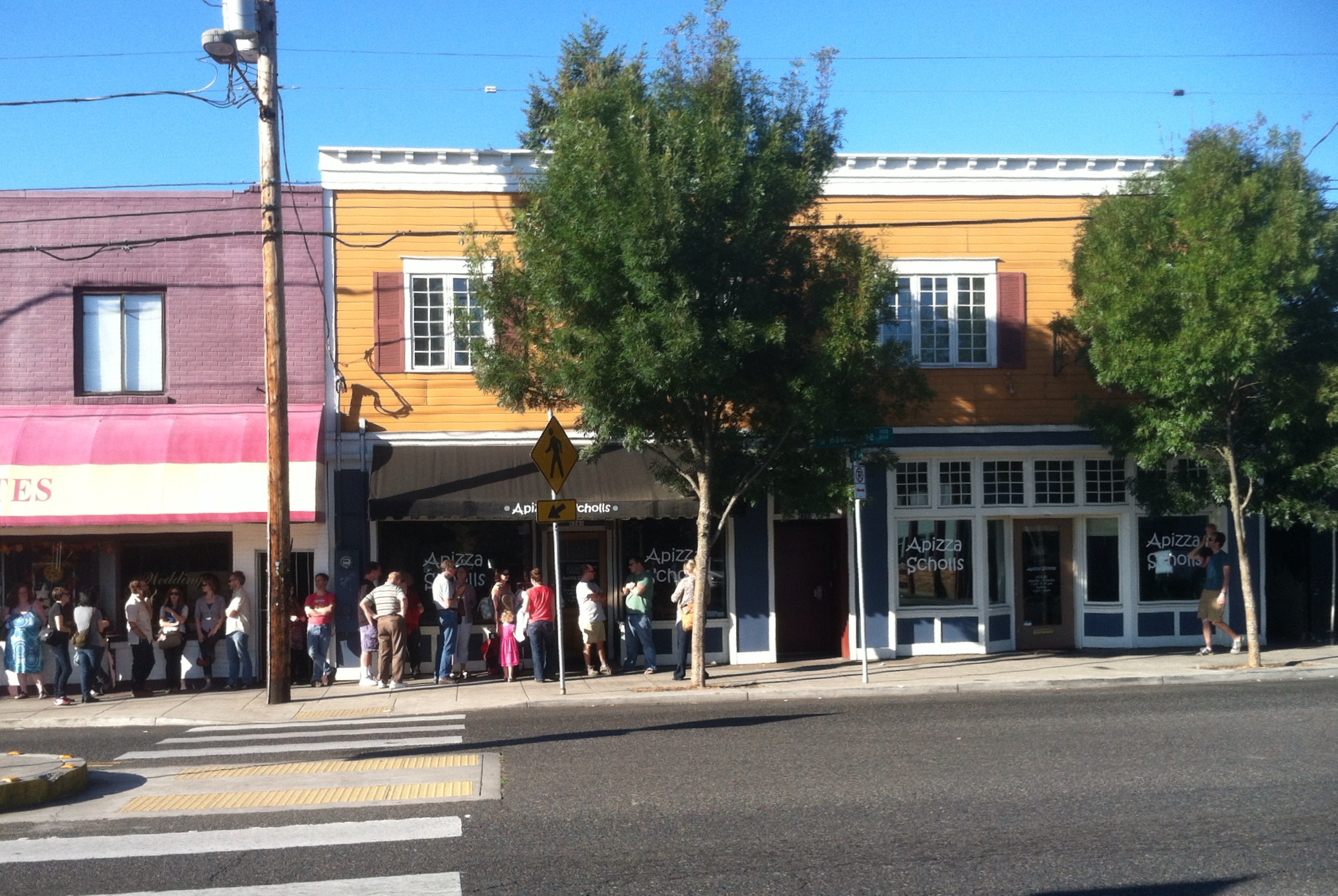 You were just discussing your success long before you opened Apizza Scholls. Success is different for all of us, so what is your personal definition?
You were just discussing your success long before you opened Apizza Scholls. Success is different for all of us, so what is your personal definition?
There was success on many levels. The bakery was a success because I never went to a bank, I built the entire bakery with my own two hands with $50K cash; success because it was well received and I was proud of the product we were making.
Success was also in not standing still, trying new things. My current success came from the due diligence of diving in and jumping off another cliff. That earliest success was achieving what I set out to do with my own two hands. It broke my body. And it took me almost 8 years. I made all the pizza dough and all the bread dough by hand because I didn’t have money and I didn’t want to go to a bank and get into debt.
When you don’t have the convenience of everything you become self-reliant. It taught me a lot. I was MacGyver-ing everything up there. I didn’t go and turn on the oven. I had to source the wood, chop the wood, fire the wood, mix all the sourdough cultures, mix all the dough, shape all the dough. I did this all myself, I was a one-man show. It teaches you a lot.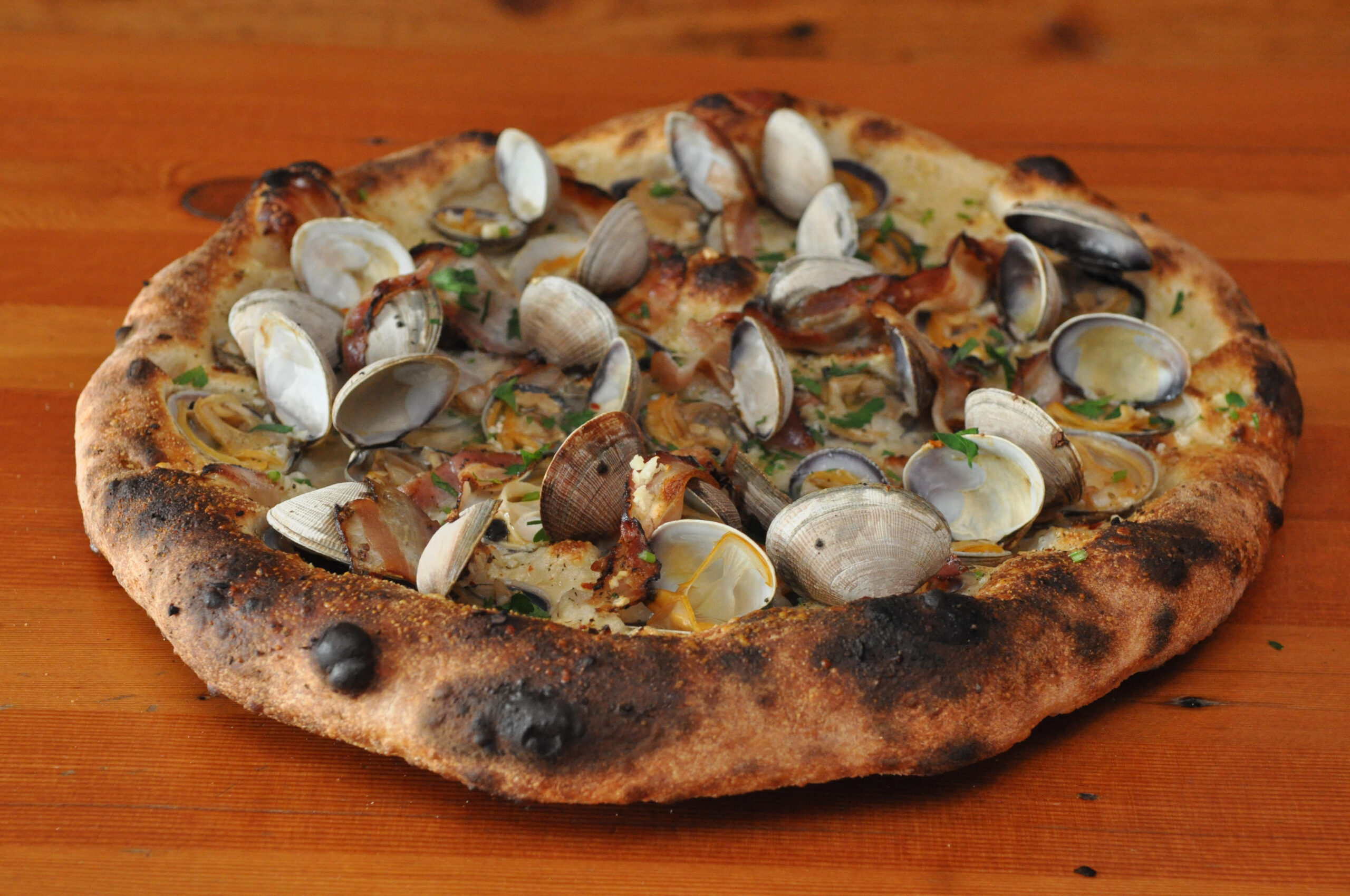
And that success leads us to today. To what do you attribute the success of Apizza Scholls?
Me! (Brian laughs). ME! Me. I had a goal, I had a dream. I’m very particular. I’m very anal. I don’t settle for good enough that’s not good enough. I’m a perfectionist. I think people identify – they sense the honesty. You transcend through your food. As John Arenas says – we call him the Pizza Yoda – “It comes from your mind, into your heart, through your arms, into you hands, into your food,” – and people sense that. And if you care… People can sense the attention to detail and the intent. Your heart transcends from your self and into your food, and this is something I instill in all my employees: Be proud of what you do. You’re in a position for creating memories. It’s an important role. We’re making memories, things you’ll never be able to shed.
If I was just some guy, cynical, saying, “Pizza’s popular now, I’m gonna open a pizza place, let’s f-cking nickel-dime on costs, on labor costs and all this other sh-t, and move it out the door cause pizza’s gonna sell.” That’s not a special place. There’s nothing special about that, other than somebody’s making money.
In doing my Google tour of you I found a meme that said, “Secrets of the Dough Masters”. As a teacher, educator, thought leader in the pizza space, are there any secrets that you would divulge in terms of mastery and success?
I always say there are no secrets. There’s only information. People call me from all over the world, if you go to PizzaMaking.com there’s my formula. I share what I do all day long. There’s no secrets. But you know what? I’ve been doing this for a long time. And you know, if you want to call it a secret: It’s failure – failure is the best teacher. You learn more from failing than you do from succeeding.
A lot of people are looking for a silver bullet. I’ll tell you how to do it, but I’m not there with you. I can’t hold your hand. You gotta go out there and grab it. A lot of people give up when they don’t have success. But, if it’s important to you, just keep going for it. I’ll give my formula to 100 different people and you’ll get 100 different results. Mileage may vary.
Your sales rep Brooke said that your sales spiked during the pandemic, instead of taking a hit. She also said you made changes to your business model.
Yes, we saw about a 20% increase on food sales when this all went down. Obviously we went down on alcohol sales. We were a 90% dine in, maybe 10-20% max To-Go. When this all went down, we went up 20%. 20% food, a lot of loss in alcohol sales. We’ve killed our 3rd party delivery systems and maintained all of our employees. Sure we’re all playing different roles: you work the phones; you work the door controlling traffic flow; instead of serving now you’re processing payments; you now write everybody’s names on boxes and help control and expedite up to the front of house; payment systems; delivery systems.
I’ve been working with Provvista (Now CW) for almost 18 years. Best company I’ve worked with, bar none. When we were starting out and asked around who was the best company with the best ingredients everything pointed towards Provvista.
I remember doing an anchovy tasting with them in the early days. They opened up 9 variants of anchovies for me.
I remember my original rep, he looks at me, they’re dealing with high-tier restaurants and we’re…a pizzeria. And he asks, “Why are you coming to us?” I’m like, “You have the best ingredients. I can go to FSA and get Hormel. You’ve got all the other great ingredients. Let’s go for the best.” Provvista used to hold their Christmas parties in our dining room. It’s just been a great relationship. I don’t look at (The Chefs’ Warehouse) as a company so much as a family. I’ve always had the best service.
With the chaos due to Covid, we pivoted quickly. I had a lot of ideas, my employees had ideas. And I was on the phone all day long, not only talking with Chefs’ Warehouse – I knew with all the restaurants closing they’d be reducing their inventory, ‘cause they’ve got a lot a perishable sh-t. Also talking with the producers, telling them what I think is going to happen to make sure I don’t get shorted because if there’s a hiccup in the supply chain I have nothing to sell.
Pizza is a great to-go food, it’s a family pleaser, everyone can always agree on pizza, it’s not expensive, it’s comfort food, especially during these times. We’ve been around a long time. We’ve got that name, that lineage. We’ve always put our
product first. We care about consistency. Quality.
But yeah, we’ve been doing pretty well.
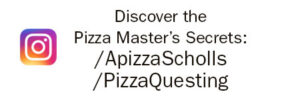
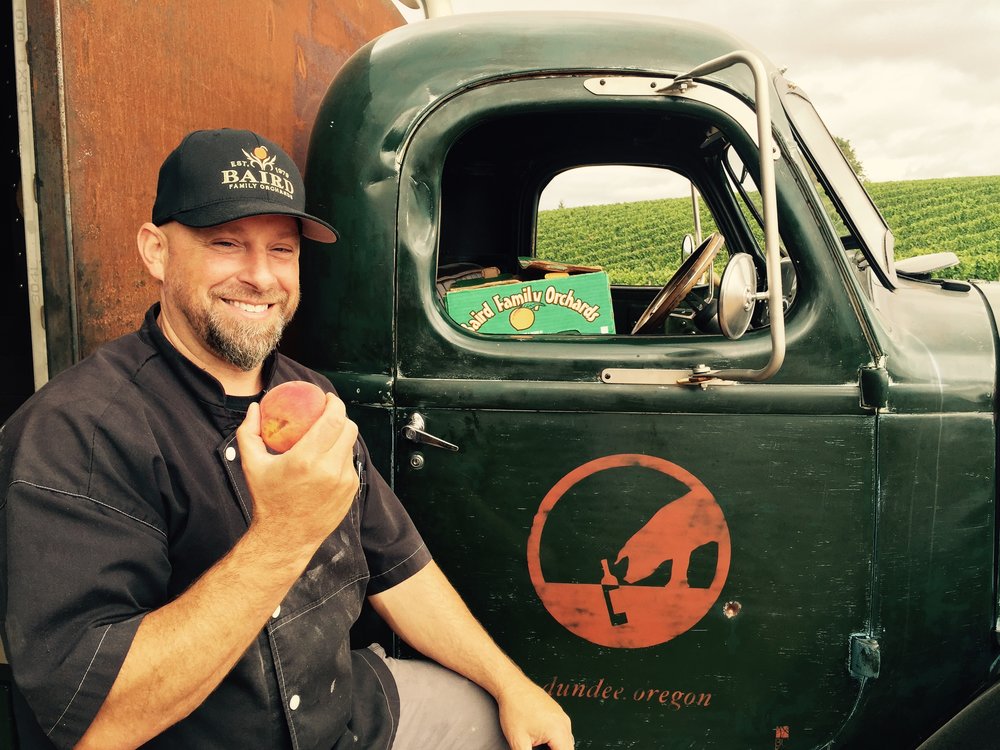 RED HILLS MARKET
RED HILLS MARKET
Jody Kropf
Jody Kropf grew up in the small little town where ‘Stand By Me’ was filmed, Brownsville, Oregon, home to his parent’s restaurant – a little creek runs through the middle of it, and the bridges in that scene where the boys are running around, Jody rode his bike there, swam in that creek. He moved to the Willamette Valley, Oregon’s Wine Country, with his wife 20 years ago, an area of rolling hills, vineyards, hazelnut trees, and beautiful views. He calls it home.
How does your story begin?
I grew up in a heavy farming community, lots of gardening, canning, cooking from home. Just a way of life for my family. A pot of soup bubbling on the stove is part of my DNA, and it’s what pointed me to the elevated comfort food of Red Hills Market.
It excites me when I see a farmer come in excited about a product they’ve grown – and I get to turn around, process it, and then see the look on somebody’s face when they’re like, “Ah, this is amazing,” and I get to tell them the whole story about it, the salt I use, that my friends made the olive oil and delivered the produce –
It’s an extension of that warmth and family-farming way of life that I have a passion for. I really believe that’s what pointed me towards Red Hills Market. When you sit down and break bread with somebody and spend a moment to set down the cellphone, something magical happens.
You’re talking about what came ‘from’ your family, but Red Hills ‘is’ a family business.
100%. My wife and I run it, my oldest brother, he’s our IT, maintenance, all-of-the-above, he works one day a week for us, my little brother helps cater. Another brother and our mother are invested in Red Hills Kitchen, our restaurant.
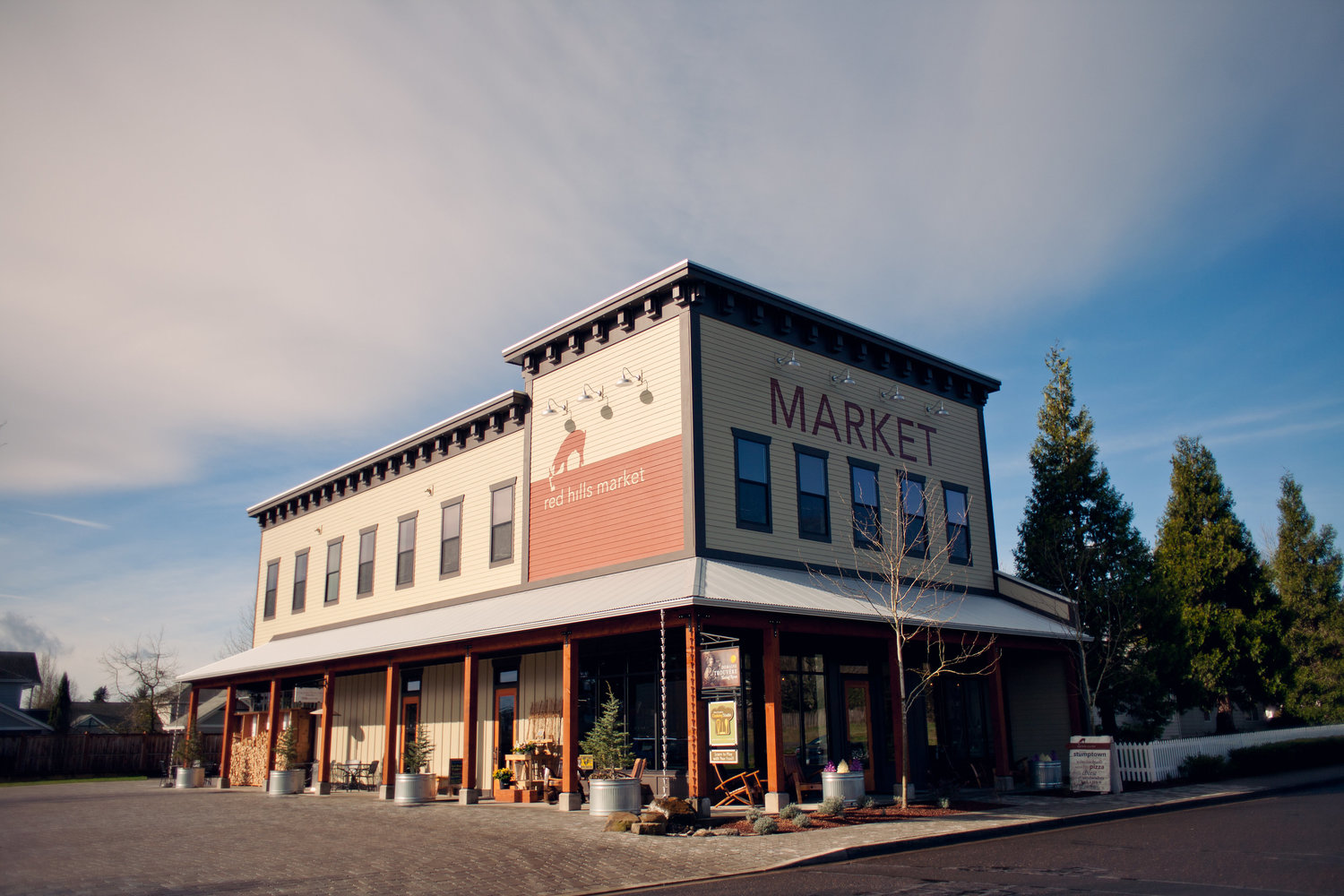 Red Hills is much more than a market. Can you give the breadth of everything you’re doing under that beautiful roof?
Red Hills is much more than a market. Can you give the breadth of everything you’re doing under that beautiful roof?
Think of it as if you walked into a really good coffee shop that had a cheese shop, and a wine shop, a restaurant, a gift shop, some retail food, and then this great place to hang out, and you shoved it all into 2,500 sq ft. Now you’ve got Red Hills Market.
It’s like a modern day “Cheers”. We’ve also got a catering presence. It’s kept us diversified, and it’s been a huge part of our success during the challenges of Covid and the wildfires that we’ve recently had in this area.
Can you speak to those issues?
Re-opening after Covid I felt was harder than opening the restaurant the first time, which is saying a lot. We’ve had to completely rework our entire flow of space from our Enter-only door, Exit-only door. We took our kitchen completely apart, epoxied the floors, cleaned every surface, painted everything – because I want people to walk in and say, “This is the cleanest restaurant I’ve ever been in in my life,” I want our staff constantly sanitizing; constantly making sure we’re doing everything they can do to make people feel confident because we’re welcoming back customers that were very frightened about Coronavirus for a very good reason.
We had some customers who weren’t the greatest – saying, ‘What, I have to wear a mask? I have to stand over here?’ And even to this day we have to be constantly on top of that. We didn’t make it a political thing, we didn’t make it a ‘big, bad government’ – we made it about ‘these are the rules to succeed and we’re going to thrive in this model,’ and so far so good.
Is there a dish or plate that exemplifies who you are?
Our meat and cheese platters are one of our most photographed things at Red Hills. And it ties closely to CW because we buy olives, Marcona almonds, cheeses, prosciutto. And our local heartbeat extends through local vendors: there’s Briar Rose Creamery – we’ve used their cheese from day one, Jacobson Sea Salt – freaking amazing, Durant Olive Oil, Smith Tea from Portland.
We do these little picnic boxes which are basically a charcuterie box for two to go, people will grab a bottle of wine and make a meal out of it. I took one yesterday, picked up a maple leaf that had turned bright red, grabbed some grape leaves from out back where there are vines growing over our outdoor seating area, some herbs – just using what’s around us to make it beautiful.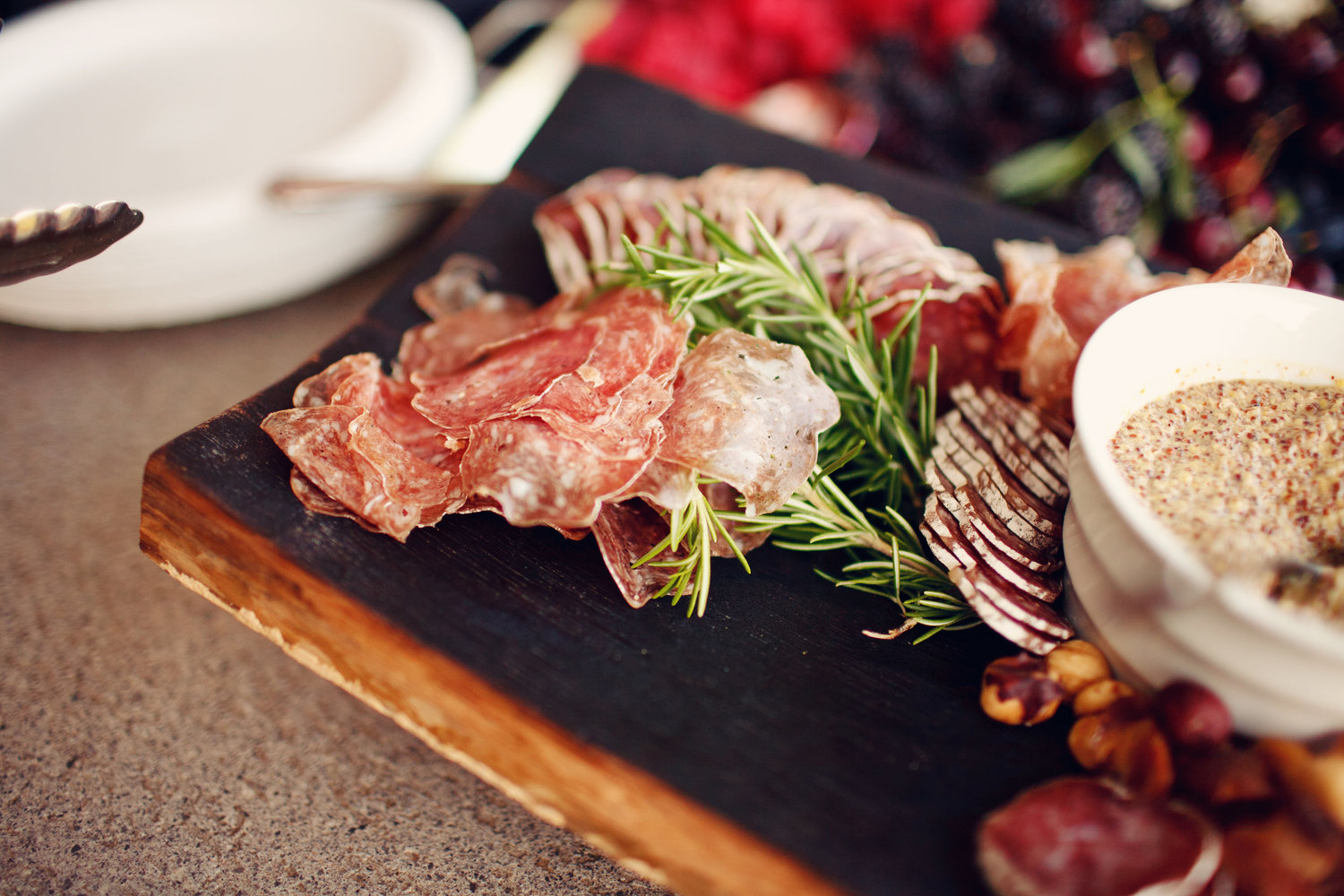

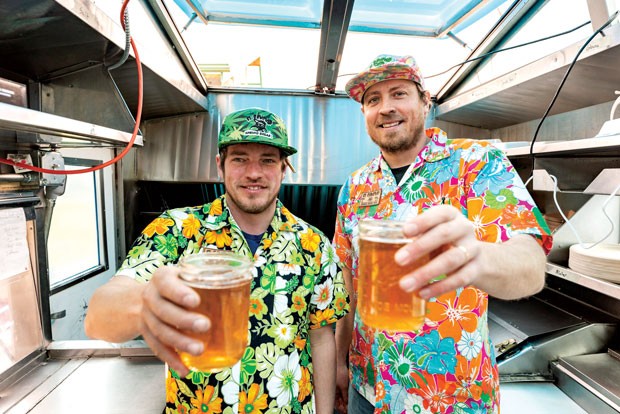 El Sancho
El Sancho
Joel Cordes & Jon Barvels
With more breweries per capita than any city in Oregon, Bend is a small community on the Deschutes River filled with diversity, lakes, Cascade peaks, Mt. Bachelor, endless trails, and local favorite El Sancho Taco Shop owned and operated by restaurant partners Joel Cordes and Jon Barvels.
How did El Sancho come about?
JOEL: John and I met working at Rock and Dave’s Bagels –
JON: I had just moved to Bend. I was working at the bagel shop, Joel was in between running the cart and figuring out what was going on with his life. He fired up the cart, needed some extra help. I came down and helped him out one one night and that was the start of it.
Bend’s big, it’s not a town, it’s a city. Why Tacos, why Mexican? Was it a need, was it something you’re passionate about?
JOEL: I started out with a little pushcart doing tamales. I’d always studied Mexican food, liked it a lot. Wanted to do something different than what you see around town, but then people started buying the tacos once we offered that. So we hit the tacos hard – they were popular and it seemed like the right thing.
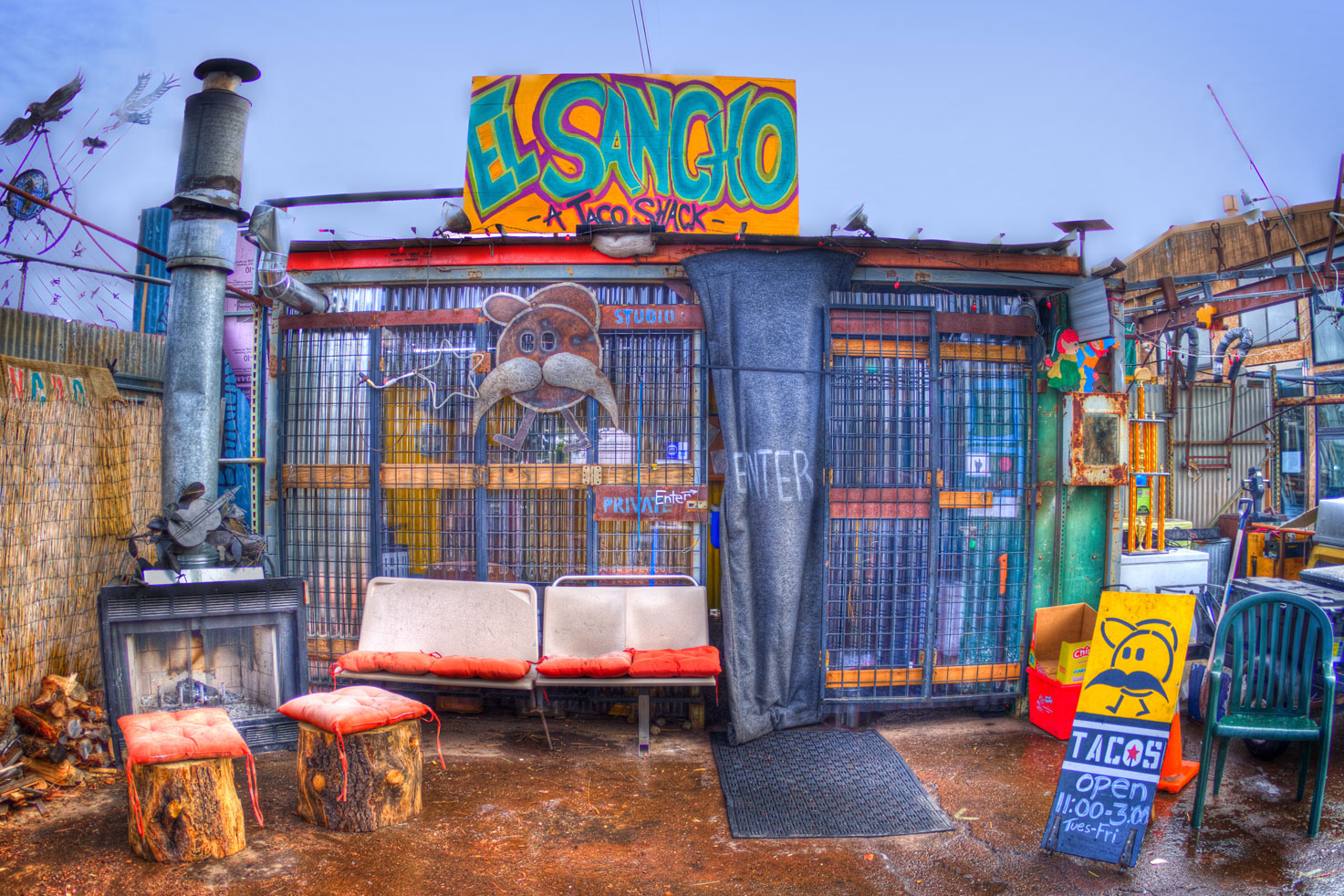 JON: I think, too, we both enjoy working in restaurants, but we were both tired of working in restaurants – tired of the grind of it, so how do we get to do something we like to do and really enjoy, but not follow the typical restaurant model? Even now, we’ve two restaurants, a couple food carts, I don’t really know if I consider our restaurant the same as a ‘real’ restaurant, and I think our staff and people that come here feel that, too.
JON: I think, too, we both enjoy working in restaurants, but we were both tired of working in restaurants – tired of the grind of it, so how do we get to do something we like to do and really enjoy, but not follow the typical restaurant model? Even now, we’ve two restaurants, a couple food carts, I don’t really know if I consider our restaurant the same as a ‘real’ restaurant, and I think our staff and people that come here feel that, too.
JOEL: We’re a little bit different. Our model. It’s sorta streamlined, and it’s a business that kinda replicates with different situations: be it a cart, restaurant, events, festivals, catering. It all kinda translates.
JON: And with an end goal, too, that we get to actually enjoy our lives and not feel like we’re in the restaurant 60-70 hours a week. and I think that’s what we try to impart to our staff field managers, line cooks, dishwashers, anybody. It’s got to be a work/life balance. It’s helped us retain staff, and makes people enjoy working here for a lot longer. It makes customers feel that love and joy that they feel when they’re here.
Tell us about your menu.
JOEL: The standard menu (tacos and sides) are our recipes but Carmen has touched up some of the side items and salsas. The rotating specials menu is pretty much all Carmen. Some of her most popular specials are Pork Verde, Pork
Colorado, Mahi Ceviche and Posole. Tacos are what we’re known for but if you want to venture out and try something different you can’t go wrong with something from the special board.
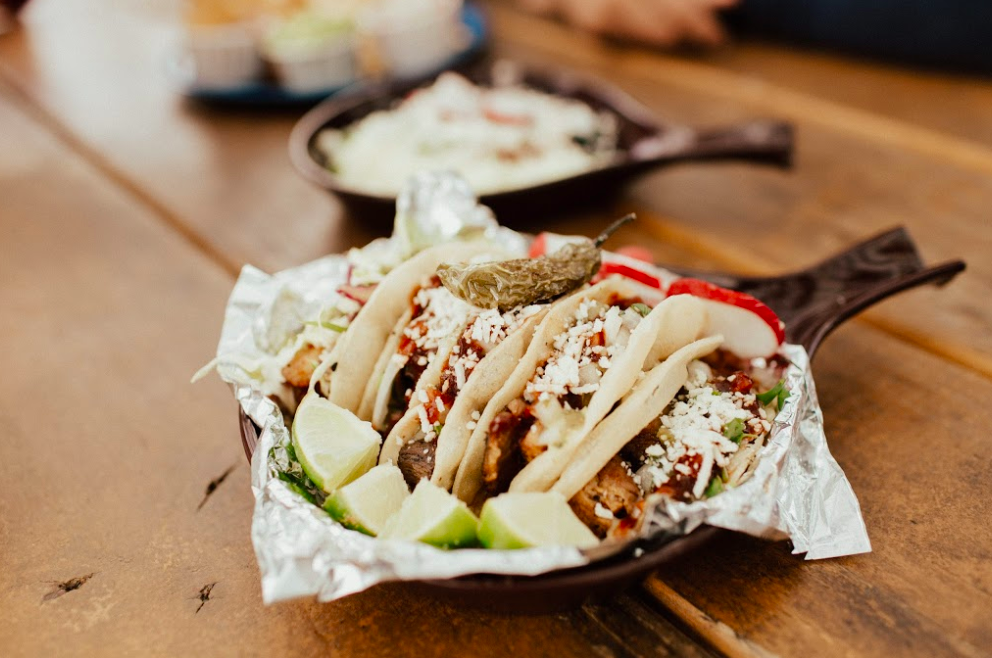 Let’s stick with Carmen a sec – because the one thing that Bart, your sales rep, said prior to this interview was, “Ask about Carmen” exclamation point.
Let’s stick with Carmen a sec – because the one thing that Bart, your sales rep, said prior to this interview was, “Ask about Carmen” exclamation point.
JOEL: Ha! She’s amazing – originally from Veracruz, Mexico. She’s definitely reinforced a lot of what we do here. And she can show us the ‘real’ way. She grew up cooking with her aunts from a really young age. She’s done it her whole life. Puts a lot of love and care into it. We’re super lucky to have her.
With what’s going on with the pandemic, how have you guys been affected? Tell me about the challenges.
JON: We were 2 weeks away from opening our 2nd restaurant: hiring, training, and we had a staff of about 72, and we had to lay off 60 people. Super tough, but it was just like, if we don’t survive there won’t be a restaurant to come back to. First, we opened for takeout. We reworked everyone’s salaries and we made it so we could make it through it. Played the takeout game, tried delivery. Luckily we had a pretty good takeout following going on, and our food holds pretty well. That’s how we held on for those 2 months. And then once Oregon was able to open back up, we were able to open the second restaurant and hit it, and hit it hard.
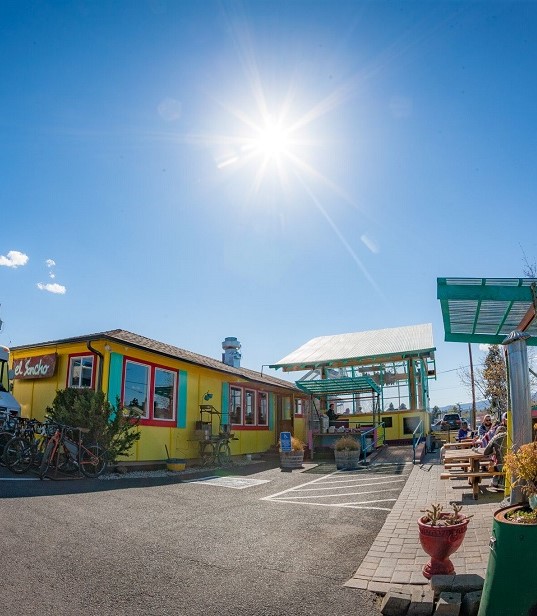 What makes El Sancho unique?
What makes El Sancho unique?
JON: We are who we are. We don’t try to play by the rules. Sure, if something makes sense for the way we want to do it, we’ll do it. But me, Joel, we
empower our managers to make decisions based on how we want to do things, and that’s what we do. If you like it, that’s awesome, come in, we hope you enjoy it. And if you don’t like it, that’s okay too. You can go to a different restaurant and find something else that you like. So, we want to be ourselves, and then if you like it? Come on in.





